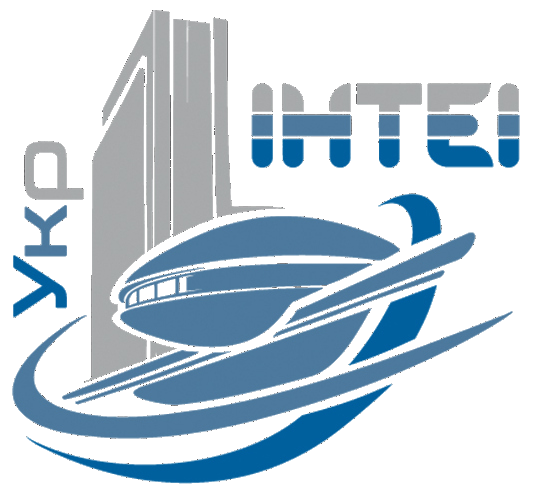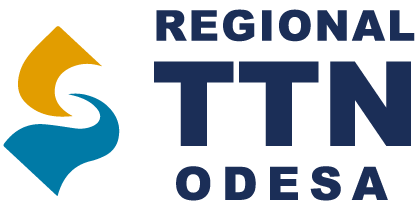Ukrainian startup that provides psychological assistance using artificial intelligence
The Elomia bot created by the Ukrainian student is designed to help cope with anxiety and other psychological problems: professional psychologists teach the neural network to recognize the emotional state of the interlocutor and support him in crisis situations.

The idea to create a bot for a messenger that would provide psychological support and assistance appeared in the 20-year-old Kharkiv student Taras Pogrebnyak, as he himself says, through his own psychological problems. In his first year, he received a grant from UNICEF for UAH 400,000 and created his own company, which offered psychological counseling, focusing on social networks and the Internet in general.
“We wanted to be different, but it turned out that no one plays on this field, because there is no demand for the services of a psychologist in this format. Relatively speaking, a 20-year-old student living in a dormitory and having suicidal moods about 11 pm will not call a psychologist, because no psychologist simply works at such a time”, – says Taras.
Taras himself is perhaps the most enterprising person I have ever heard or known about. We met him a year and a half ago, when I spoke at a conference as a candidate for the head of the university student government. In his first year, Taras created the KhPI Online telegram channel and wanted to interview candidates, of whom there were only two. Not long before this, the administration of the KhPI began attempts to crush student self-government for itself, which, in fact, made me run for office then. In the end, I lost the election, but since then, at the invitation of Taras, I became an editor in his modest media, which now, however, has 4000 subscribers and is the most powerful at the university. And finally, now I am interviewing him myself – like a targeted start-up who wants “every person on the planet to have access to quality psychological help”.
Yai tells Taras now, having spent UAH 400,000 from UNICEF (unsuccessfully in his opinion), he eventually came up with a slightly different concept of how psychological assistance should be provided. Or more precisely, who should provide it.
While studying artificial intelligence at our technical university (according to the administration’s version – the best in the country), Taras began asking teachers about artificial intelligence, in fact, but they answered that they “don’t know” (¯_ (ツ) _ / ¯). “I posted flyers at the university and at the offices of Nyx Solutions (Kharkiv IT company – auth.),” He says about his attempts to find a person who will help him turn his idea into reality. Finally he found a man named Mikhail Markevich, developed a neural network, learns to maintain a dialogue with his interlocutors that could replace a conversation with a “live” psychologist.

This neural network is the basis of Elomia – “AI-friend who makes you feel better (AI – artificial intelligence – author)”, as the company itself presents its product. He is personified by a smiling blonde, which the user sees on the avatar. However, it is likely that this image will change over time, because the startup already offers other options for voting to subscribers of its closed testers channel. The name Elomia was given by an algorithm written by Taras Pogrebnyak to generate names that are not in the world or that happen very rarely. According to Taras, Elomia’s neural network now has 30,000 scenarios and has no analogues on the planet. If the algorithm cannot generate the user’s response on its own, professional psychologists are connected to “teach” the neural network how to react in such cases, thereby increasing it like a snow globe. Based on the user’s behavior, the neural network evaluates his emotions in points, showing a tendency to anxiety, depression and other crisis states. The company also has an algorithm that determines the mood of users on Twitter.
Today, the product is under development and is looking for investments, but you can use it right now, and some people are already leaving feedback, wrote that the bot helped them calm down, solve relationship problems, “don’t ********* [get off mind] from loneliness. “Some wrote that Elomia distracted him from suicide. However, sometimes even the company itself cannot verify the validity of such reviews.” [Facebook] Messenger gives us the most depersonalized information. We do not even know the name or country of residence of the person writing to the bot, and even if a person leaves feedback, we cannot match it with a specific correspondence. ”This is also what motivates the absence of the risk of sensitive personal data getting to third parties.
As of now, Elomia is used by about a thousand users. However, Taras considers his plan to be truly global, setting himself equally global goals. He estimates the potential audience of his startup at 600 million people from all over the world who may need psychological help. Yelomiya speaks only English and now mostly with the British, who, Taras draws attention, complain of psychological problems associated with quarantine, which, in contrast, is not done by users from Ukraine at all. There is also a noticeable general difference in the development of psychology as a sphere of medical services in Ukraine against the background of developed democracies. “In the West, people are more prepared in this regard. If in Ukraine the majority did not go to a psychologist, then there a visit to him is often already included in the insurance plan, and people who are already receiving some kind of therapy write to us. In the long run, Taras is convinced, psychology should also use augmented reality to provide assistance even more accessible and effective.
The Elomia company itself is now working “with an empty stomach”: a team of sixteen people (mostly psychologists and mostly Kharkiv and Kharkiv women) has no income from the project and is only looking for investments. Out of the forty thousand hryvnias of aid from the investment group CIG have already spent “a little more than fifty.” A few months ago, the project submitted an application to the USF state investment startup fund, which appeared in 2018 – on the initiative of Prime Minister Groisman, who was then inspired by a trip to Israel and familiarity with the local startup ecosystem. Elomia received high marks and were invited to speak to foreign and Ukrainian experts. If approved, the fund will provide the startup from $ 25,000 to $ 75,000.

The company does not have an office, but “if we did, we wouldn’t use it”. The software allows many full-time employees and freelancers to work “even at sea”. Taras says that he works for free at 12:00 a day, seven days a week, and this manages to motivate the team. “When you are twenty years old, you are not families, children, you can live in a hostel, eat nuddles. You won’t start a startup when you’re 40″.
When asked if he is afraid of protests from psychologists, similar protests by disgruntled taxi drivers who have lost their jobs due to the rapid development of Uber, Taras replies: “I’m afraid”. “But, as I always say: the market will settle down”.
If Adam Smith is to be believed, he will really “settle”. Its strict laws lift some and drown others, like an ocean wave that lifts the nimble surfers and covers the less skilled. However, it is impossible to count the number of people who could not fully reveal their talents, rather drowning in the mental ocean of personal complexes that they could not help in time (often the school, especially the Ukrainian one, only stigmatizes psychological problems, and does not solve them). Artificial intelligence and machine learning in particular are increasingly used in the modern world to optimize a wide variety of tasks. Perhaps they will ultimately become a lifeline that will help many people avoid unnecessary discomfort by getting rid of psychological problems in time.
Source: khpg.org










